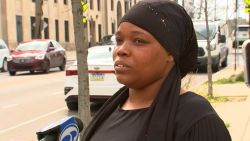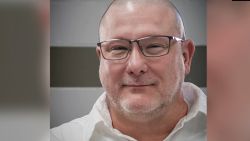For more, watch CNN’s Special Report ‘Scheme and Scandal: Inside the College Admissions Crisis’ on Sunday at 9 p.m. ET.
For our readers, real life doesn’t have a Hollywood nickname like “Operation Varsity Blues” and the scandal, as it continues to unfold, isn’t an abstraction. “It’s a slap in the face to the American dream and to the other kids in the Chicago Public School system,” said Christian Badillo, the first student from his high school to be admitted to Stanford University, where he is now a senior. It’s a reminder that, as graduating high school senior Mick Hashimoto put it, “We are frustrated with what America has become.” Hashimoto, like so many of his peers across the country, is waiting this week and beyond for the results of his own college applications.
“The best lesson I learned there,” wrote Liza Lockard of her time as a graduate student at Yale University, was that those “who come from extraordinary privilege” were “no smarter, or no more talented than I was.”
And “because of what it took for me to get there” – Lockard, now a professor in Hawaii, had battled addiction and homelessness – “I knew was much stronger than they were.” For Celeste A., the university admissions process is too narrowly focused on standardized tests – and courting the kind of privilege that breeds self-doubt in too many other hard-working kids. Her daughter has been accepted to prestigious universities, but still questions whether she is “smart enough.” Chris H., who worked his way through an Ivy League school in his 20s, now says that degree “has been worth very little.” For artist Aimee Manion, college felt like a bait-and-switch for which she was unprepared; on the far side of it, “student loan debt shaped the course of my life.”
Badillo, Hashimoto, Lockard, Celeste, Chris and Manion are six of the hundreds of CNN Opinion readers who shared their stories in response to a question we posed as part of an op-ed by David Perry, a longtime scholar and journalist with expertise on disability issues. Perry deemed the scandal “just the tip of the iceberg” in terms of the gross inequalities perpetuated by the systems of higher education in America. He also noted the potentially devastating rebound effects of the scandal on students with disabilities in particular; “alleged criminals like these” risk making “disability accommodation” into “a battle between student and suspicious professor, rather than a process of community building and inclusion.”
The college admissions scheme hits many of us – parents, students, teachers, citizens – in places where we are vulnerable. For some, it’s because you believe in fair play or have been made to feel less than at school or at work. For others, it’s that you have been or have raised the kid who went sleepless to earn those extra points on an assignment. Or you just grew up watching “Full House” or “Desperate Housewives” and can’t look at Lori Loughlin or Felicity Huffman the same way on your screens, or – like reader Hosniya Zarabi – still remember the moment you got the “big envelope” from the college of your dreams and now wonder what it all meant. Whatever your perspective, a lot of illusions died last week. The full toll of the charges of fraud and bribery and the further events and revelations they have touched off won’t be known for a long time to come.
Thank you to all the readers who weighed in. Here is a sampling of your responses. Some have been lightly edited for clarity and flow.
Stanford senior: This is a slap in the face to the American dream
Like many other working-class families around the country, my parents told me that if I worked hard in high school, I could gain access to opportunities that were unavailable to all previous generations of our family. College was a foreign concept to them, but I truly believed what they told me. I worked hard, applied to Stanford University my senior year, and got in despite no one in my high school getting in before. I was lucky enough that out of the stack of admissions applications they received, they chose mine out of the pile. Many other people worked just as hard or harder than I had with less opportunities, and it felt bitter sweet to be chosen.
I am now a senior at Stanford and have seen the disparities between those who had opportunities and those who didn’t. These differences manifest themselves in many ways and it is disappointing to say the least. But what’s even more disappointing is knowing that among my peers are those who cut in line; those who prevented other first-generation, low-income students who worked just as hard or harder than I had from getting in, just because they had money. It’s a slap in the face to the American dream and to the other kids in the Chicago Public School system who believed what their parents told them. It makes me question the value of the degree I will receive this June, and it hurts me to my core that other parents who worked hard like mine to see their kids go to a school like Stanford won’t be in attendance.
Christian Badillo, Palo Alto, CA
High school senior: We are frustrated with what America has become
I am currently a senior in high school, I and all my peers await on college decisions as March rolls by us. The last four years of work and dedication for some of us means that we will be attending higher education. As early decisions have already come out, a lot of being crushed by getting rejected by our dream schools. We ask ourselves whether or not the decisions we have made in the last four years were correct or not. We ask whether there were times when we could’ve worked a little harder. We begin to question the meaning of it all under the devastation of not getting to a dream we have all dreamed of. It’s the current societal pressure in part that forces all of us to look through college rankings and make sure to get into the big-name schools. In the midst of the depressive states of some of our peers though, many are delighted to hear that the college of our dreams accepted us. But once again, societal greed shows that for some, it wasn’t the hard work that has gotten us into the schools. It’s the bribery and fraud. Again, we question whether or not the decisions we made were the correct decisions.
I was born into a middle-class family like many Americans but am fortunate to be able to go to a well-funded public school. The American education system needs reform. American teachers are not paid enough. Some schools only open for four days because they don’t have enough funding. We categorize all these schools as public so all Americans can be educated, but the education we receive is not all the same. In the midst of that, the top 1% cheat the system to avoid the poorly funded schools. They cheat to get into the schools we worked hard to get into. What I get from this news is that I like many others am frustrated with the system. We are frustrated with greed that clouds the American future. We are frustrated with what America has become. All I ask is for justice to be brought forth.
Mick Hashimoto, Denver area, Colorado
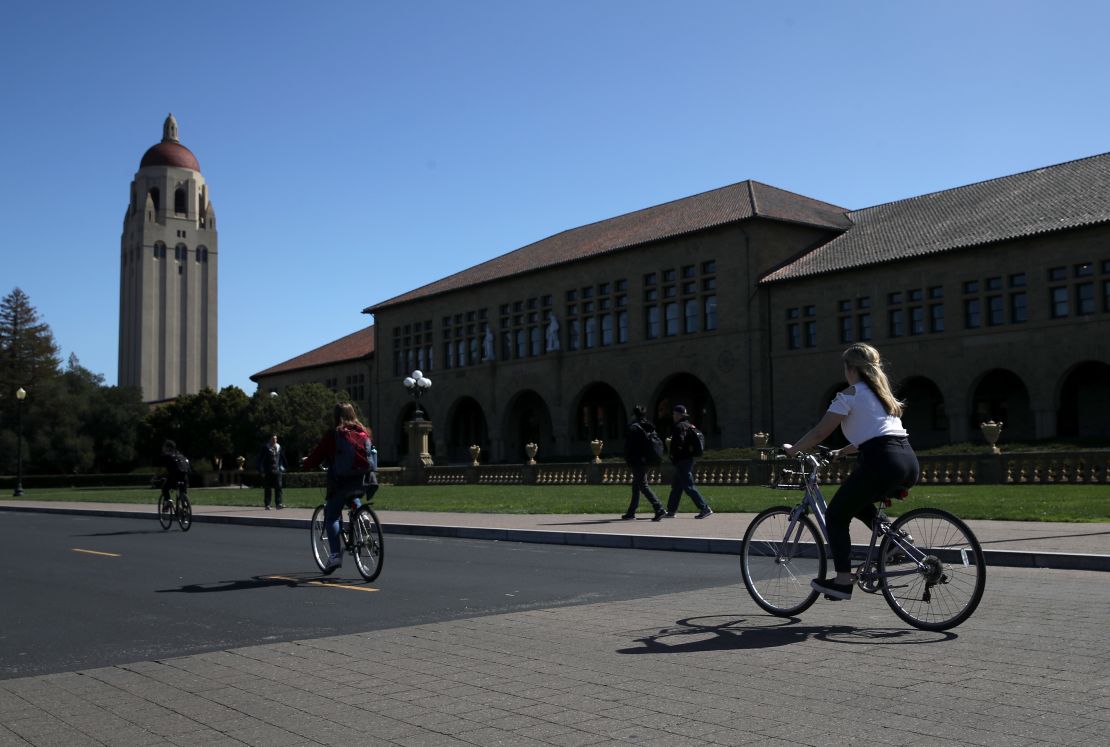
I still remember the “big envelope” – and how hard it was to get it
Reminiscing about the day I received my early acceptance to Stanford. My dad handed me “the big envelope” when I came home, and though it had the word “congratulations” written on it in bold letters, I still hesitated about its contents and ran to my room to open it in private. It was one of the happiest moments of my and my family’s life, a moment made even sweeter given the sheer time and effort I’d dedicated to this goal growing up. Looking back, I frequently slept little in high school, juggling numerous extracurriculars, AP classes, and independent projects, as I did during my intern year in neurosurgery residency. Growing up in the Bay Area with many driven peers (most of whom were immigrants like myself or children of immigrants), the competition was stiff, and despite our efforts, near perfect SAT scores and 4.5+ GPAs, there was no guarantee any of us would get a coveted spot at a top-tier institution.
The news [of the admissions scam] is frustrating in that it highlights a system that many hard-working students are already familiar with – a system where privilege, legacy, family donations and connections can easily trump a perfect application and the years and efforts it takes to build such a thing. The same is also true for graduate and medical school admissions, where spots are sometimes even tougher to come by. But I am also hopeful that this incident will encourage those students who’ve earned their way, especially those dealing with imposter syndrome, to feel more confident about the fact that they do indeed belong at these institutions.
Hosniya Zarabi, San Francisco area, California
My daughter’s self-doubt makes me the angriest
I was born without privilege in North Philadelphia back in 1972, when many African-American families were just beginning to make a better life. My dad did just that, finishing an apprenticeship as an architect. We “moved on up” like the intro to “The Jeffersons” said and life was much better. My parents’ sacrifices paved the way for me to attend a four-year college and graduate with a STEM degree. I now own a small IT business and live a comfortable life.
I raised both of my children with similar values, which brings me to my daughter who is waiting anxiously for her college acceptance letters this month. She is graduating with a 4.3 and a 1340 SAT score, a score which she worked so hard to get – $3500 worth of tutors which I could barely afford and many nights on Khan Academy to improve her score from 1150 to 1340. This kid has worked her butt off taking a very rigorous course load, running several clubs, Girl Scouts, public relations coordinator for the Maryland state class council … you name it, she’s doing it or trying to do it to show how “well-rounded” she is and what an asset she will be for any school. She’s scared that her SAT score wasn’t good enough, but then a couple of acceptances came in: UNC Chapel Hill, UMD-College Park and Georgia Tech.
Then the self-doubt starts. She asks me, “Am I smart enough for these schools, Mom?” “Why?” I ask. She tells me that all her friends stress about the SAT score and remark about how her score isn’t that high, so how did a girl like her get into a school like Georgia Tech. Random folks on social media ask her to share her SAT score and GPA. Is it because she is black? We wonder, and it eats at us. We don’t want to be the affirmative action quota. EVERYTHING is about that damned test. Our lives hang in the balance on that score. And the values that I have worked so hard to instill in my children don’t matter. What matters is that SAT score. And now to find out the level of cheating going on – it really pisses me off. I had heard rumors before this, that parents were paying tens of thousands of dollars to cheat their way into a great SAT score. So I am not surprised, but I am still pissed. Why should your acceptance to a college depend on one test taken on one day of your 12-grade career as a student? Life is so stacked against people like my daughter. We play the game and follow the rules, only to find out again that the rules are only for people like us.
Celeste A., Washington, DC area
I need the accommodations that others have abused. What happens to people like me now?
I have a learning disability: ADHD and a low form of Aspergers. When I was diagnosed when I was 12 years old, I was afforded every accommodation in order to get through school. I was struggling even then, but with hard work and some of the best teachers who taught me the skills I needed to succeed, I was able to get through my struggles and make it in the real world. I’m now a successful computer engineer in NYC.
When I took my SATs, I didn’t get above 900 the first time and the second time I got 1000. Both times I used my accommodation of double time to take the exam because I cannot take tests. My fellow peers and others who have the same situation as me are now going to have a harder time getting the time they need to get those SAT scores to get into schools, perhaps trying to get into a top-flight school if they have the grades to prove it. I am afforded this accommodation in my adult life when I have to take tests and other things that are timed because I need it in order to succeed. I would not be where I am today or where I want to go in the future without this accommodation. I feel like it’s now going to be harder to prove that I need it in the wake of the scandal. This hurts me to the core of my soul.
Shane F., Brooklyn, New York
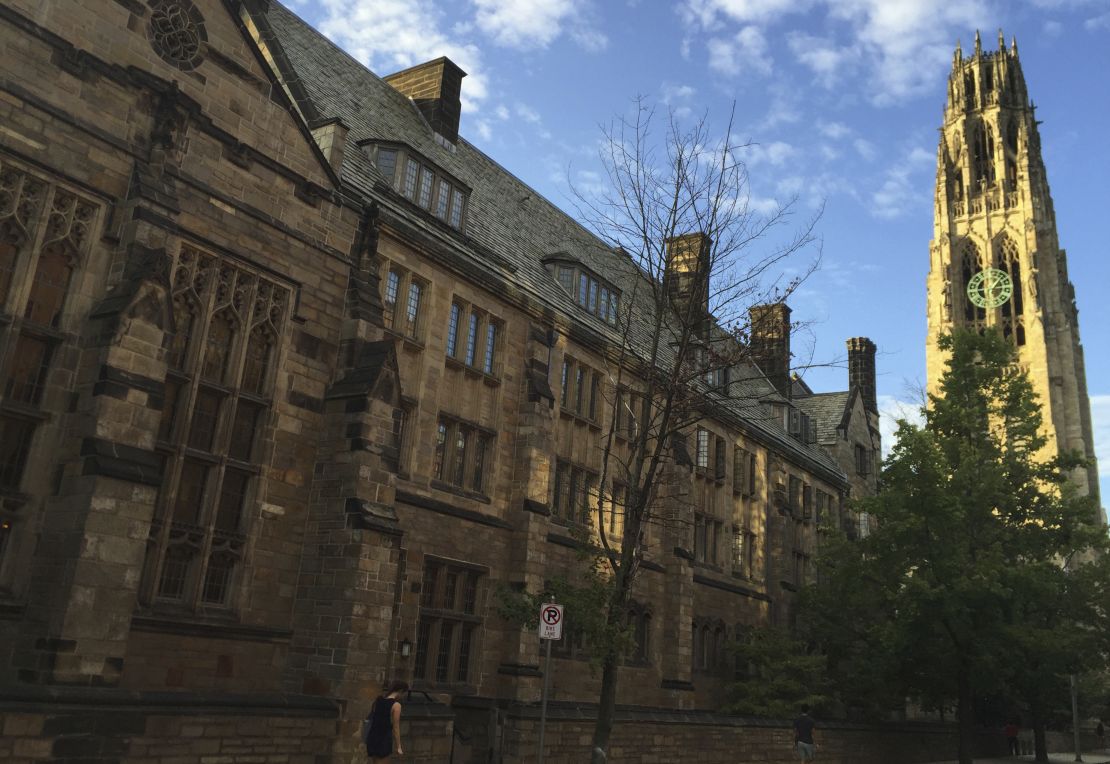
The best lesson I ever learned at Yale was about myself
I was the unlikeliest of candidates to attend college: I was kicked out of my home in my teens, graduated from high school in the bottom quintile of my class, subsequently became addicted to drugs and found myself homeless for a spell. However, nine years later I was accepted into a master’s program at any Ivy League school with a half-tuition scholarship. That had never been an explicit goal for me, but my dismal circumstances drove me to forge a better life for myself – even more so than had I come from a supportive upbringing.
I worked hard to turn my life around, and against overwhelming odds, got accepted to Yale and Columbia. I ultimately chose to attend Yale. I did not have any connections or money, nor could I brag of an illustrious academic history or exceptional accomplishments. But I never hid my dismal past in my application either; I, in fact, owned it, because it was what made me unique apart from everyone else. I was proud to have overcome the formidable obstacles in my path, because if nothing else, I possessed incredible tenacity, perseverance and resilience.
The first few days at Yale, I admit, were terrifying. I found out that I was the only student in my program who had ever waited on tables to earn a living; most of my classmates had never had to work before. There seemed to be a collective fascination with exotic classmates who hailed from wealthy faraway countries; I, on the other hand, had much more admiration for students who came from places like Paramus, New Jersey or Chicago’s South Side. I witnessed what life was like for those who come from extraordinary privilege, and despite my early intimidation, eventually came to discover that they were no smarter, or no more talented than I was. But because of what it took for me to get there, I knew I was much stronger than they were. Best lesson I ever learned there.
Liza Lockard, Honolulu, Hawaii
Student loan debt shaped the course of my life. Kids need to know what this system can do to them
I graduated from high school in 2001 in a really incredible school district in the suburbs of southwestern Pennsylvania. Most of my classmates lived in expensive new homes in gated communities. Out of 1,500 students, there were only three kids who weren’t white. And everyone went to college. Everyone. It was just what you were supposed to do after graduation. Well, my family was middle-class, so my parents couldn’t afford to pay our tuition. But my dad was an engineer and above the threshold for me to get any financial aid. So I took out several high interest loans to finance my education myself. The amount of debt I accumulated was overwhelming. I went into severe depression for many years because of the daunting amount of debt I owed. I had no idea what I was getting into when I was 18 and making these huge financial life decisions … I’ve basically been paying a high-interest mortgage for twelve years, with eight more to go.
Student loan debt shaped the course of my life. Because of my debt, I couldn’t do normal things like buy a car or a house, go on vacation or generate savings. I was living check to check, in hopeless depression. I’m 35 now and finally just bought a house. I am married, but I don’t plan on ever having kids. How could I afford kids when I still have my student loans and a mortgage to pay?! I’ll be 43 years old when my student loans are finally paid, and I don’t want to become a mother in my mid-40s. My degrees are in fine art and biological anthropology. While I loved school and love learning, the degrees themselves are pretty useless to me. I am currently a professional artist and a bartender – both jobs I could do without a degree. I always say that I should have majored in business, because as an artist I am an entrepreneur.
My biggest gripe about my situation is the lack of education I received about student loans, debt, and college. Why don’t they teach you these things in high school? We need a class to teach young kids about money – loans, interest, taxes, credit scores, how to buy a car or home, all of these big important things we will face once we become adults. Why are we letting ignorant young kids make huge financial decisions that will affect the rest of their lives? Education is becoming more expensive, and college is not necessary for success. It’s not for everyone. If I knew the amount of debt I was accumulating and knew how much interest I would pay over time, I never would have gone to college. We are doing a disservice to young students, and it’s affecting our economy in the long run. My entire generation has postponed buying houses and having kids – instead of putting our money into the economy, we are putting it into the pockets of private banks. We are becoming indentured servants to a system we didn’t understand when we were forced to make these financial decisions. Things need to change.
Aimee Manion, Pittsburgh, Pennsylvania
My son is the first to attend college and I know he understands true success
My grandparents didn’t attend college, my parents didn’t attend college, my brothers and I, no college. So it was such a proud moment the day my only son began his college career! Learning of these despicable people and practices makes me even more angry when I remember how upset my son was at being denied entrance to his first choices. Looks like all those spots were bought, not earned. It’s disheartening for these kids that they have helicopter parents who never believe in their abilities, have no faith in them and will buy their futures. They’re buying their failure. And they’ve taken away from so many others to feed their selfish needs. I’m proud that my son earns every grade, feels every achievement, and knows how to rebound from a loss. That’s true success.
Heather B., Noblesville, Indiana
My Ivy League degree let me down
My Ivy League degree has been worth very little. It has led me to observe that most opportunities afforded to persons with elite degrees depends on who you know, and who you know depends on how much money you’re born with. My education was interrupted in my 20s after both of my parents died. I had to stop going to school and start working for a living. I was fortunate enough to eventually secure a job at an Ivy League university located in the heart of a major city. Among the benefits is a generous tuition benefit package that permitted me, over the span of seven years, to complete my B. A. in 2013. My attempts at using my degree to further my career has been an eye-opener.
After I left employment with the school I earned my degree from and moved to a different city, I was only able to secure a job that paid $20,000 a year less – despite the prestige carried by my diploma and an uninterrupted 17-year work history of promotion to positions of increasing responsibility. I returned to my former employer after four years – to a position that paid scarcely more than the one I left, even after negotiation. My experience of job prospects as an experienced adult in the workplace with an Ivy League degree differs sharply from the paths of the younger, wealthier students who shared the same classrooms with me. They were armed with the latest top-end MacBook Pro computers, sometimes carried in Kenneth Cole or Michael Kors bags, and the talk among them was of which of their father’s friend’s firms they were going to intern at during the summer. It is perfectly obvious to me that socioeconomic background is the biggest factor in educational and post-education outcomes after more than 20 years as a higher education professional and seven as a recent student.
Chris H., Philadelphia, Pennsylvania
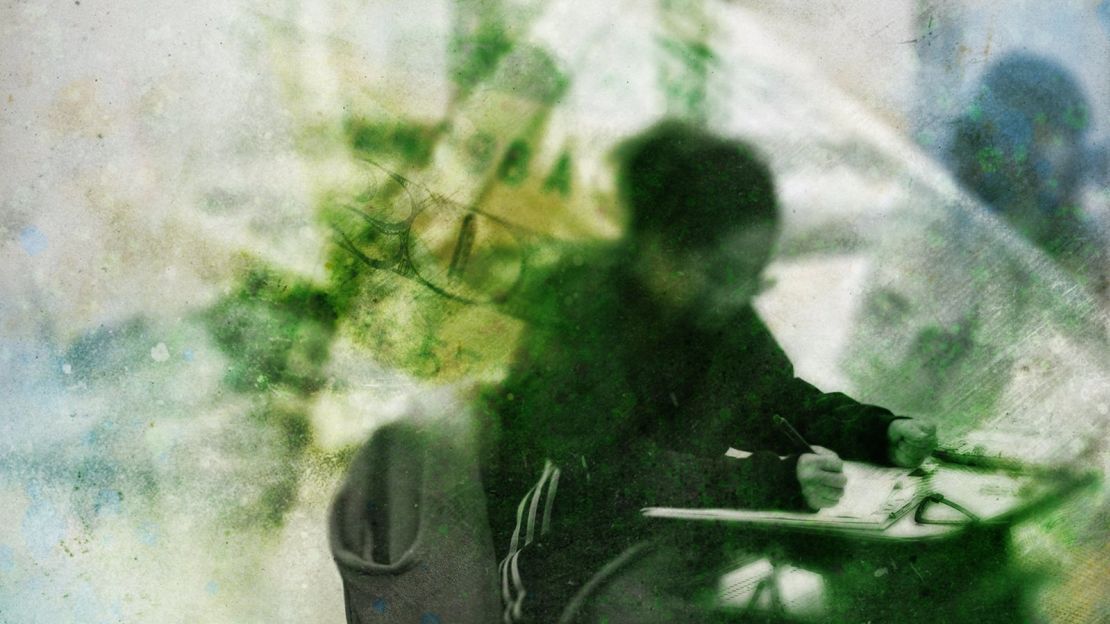
My acceptance was built, not bought
As someone who is busy applying for scholarships and pitching myself to high net worth individuals so I can afford the tuition at Cornell University-Cornell Tech campus on Roosevelt Island, this struck a nerve. Initially I had a pity party: “Poor me, too poor to go to an Ivy League school and I have to beg for money.” Then I realized, that I have secured my place all on my own merit, me, a girl from Africa who was raised by a single father. I had earned a place in a very selective LLM (masters of law) program that is at the cutting edge of technology and entrepreneurship – then I felt sorry for the parents and the children. I don’t want to be like them, but they want to be like me – to be in my position and they would do anything. Yet, what they don’t see and embrace is what I went through to become this person. When I was 13 I lost my mother, two brothers and our nanny when they were murdered by my uncle – this was on September 13, 2001.
This masters degree is another building block in my life. When I was 26, I started my legal consulting firm and I was homeless for almost a year as I put the business together. These challenges have given me something that money cannot buy – which is empathy – and through my education and entrepreneurship my desire is to share the little bit of privilege I have with others that are often overlooked. I have started non profit organizations to help early stage entrepreneurs with actionable advice and practical tool, a social enterprise to expose women and children in mining communities to digital skills.
My acceptance into Cornell has been built, not bought. I owe it to all my traumas and the single father that raised me – in what I thought was a laissez-faire manner, because he didn’t helicopter me. He provided an environment for me to discover my interests, he paid for everything I needed so I could do what I want and he was constantly there to listen, love and guide from the periphery. Although it seems terrible that the scheme has been exposed, it could be an opportunity to develop character, something too many have discounted for so long. The parents have not modeled leadership well for their children up to this point.
Tiyani Majoko, Johannesburg, South Africa
Maybe my son will get a fairer shake now that this scandal is national news
My son is a junior and attends an all-boys private Catholic high school for which I have worked up to three jobs at a time to pay for. I have always told him that he has to work hard and can’t slack off like some of his classmates can because whether they do well or not their parents can and will buy them into schools and jobs. This kind of behavior is very well known to the less privileged and especially those of us in the African American community. I and others are not surprised by this, I’m more surprised that a bunch of the wealthy and entitled got caught. My son is about to start applying to colleges … maybe he’ll actually get a fair shake now that this behavior has come to the national spotlight. One can hope.
Shannon Faulk, Newark, Delaware
These people have no idea what it is to struggle to get an education
I am 40-year-old immigrant, a single mother, and a survivor of domestic violence. For many years, I paid for my classes out of my pocket because I was undocumented and I could not apply for financial aid. It has been a long journey. I am a government major at Suffolk University in Boston. Finally, I graduate in May.
Suffolk first put my application on hold and asked me to go to a community college because they were afraid that I would not handle the workload of a full time student. I graduated from Bunker Hill Community College with a 3.8 GPA. I transferred to Suffolk and I showed them that I was capable. My current GPA is 3.5. My GPA dropped in the semester I lost my father, otherwise it would be higher than that. I work extremely hard. I study hours into the night and weekends. In order to attend school full time, I work two days as a housekeeper making just enough money to eat and barely pay my bills.
One night, after returning from school, I found my apartment dark. The electricity was disconnected. I had been saving all my money to pay rent. My daughter asked me why we did not have electricity. Quickly, a statement I read in a T.D. Jakes’ book came to mind. He said that he had been in the same situation and he told his kids that that night was a tent night and to grab the flash lights and have some fun. That was my answer to my daughter and she loved it. That night, I cried myself to sleep, but I told myself: “It’s better to sleep without lights than sleep without a roof over my head.” The struggle goes on and on, but I never give up. My child needs an educated mother. I am heading to law school next year. We Latinos and single parents do have a chance to be admitted to an Ivy League school, but our chances could be stripped away by students who are cheating the system. If I – a person who barely has time to study – can get good grades, why couldn’t they? They have money to attend private schools their whole life and hire all types of tutors. Why are they cheating the system? These people have no idea what it is to struggle to access a higher education.
Luciana Silva, Arlington, MA
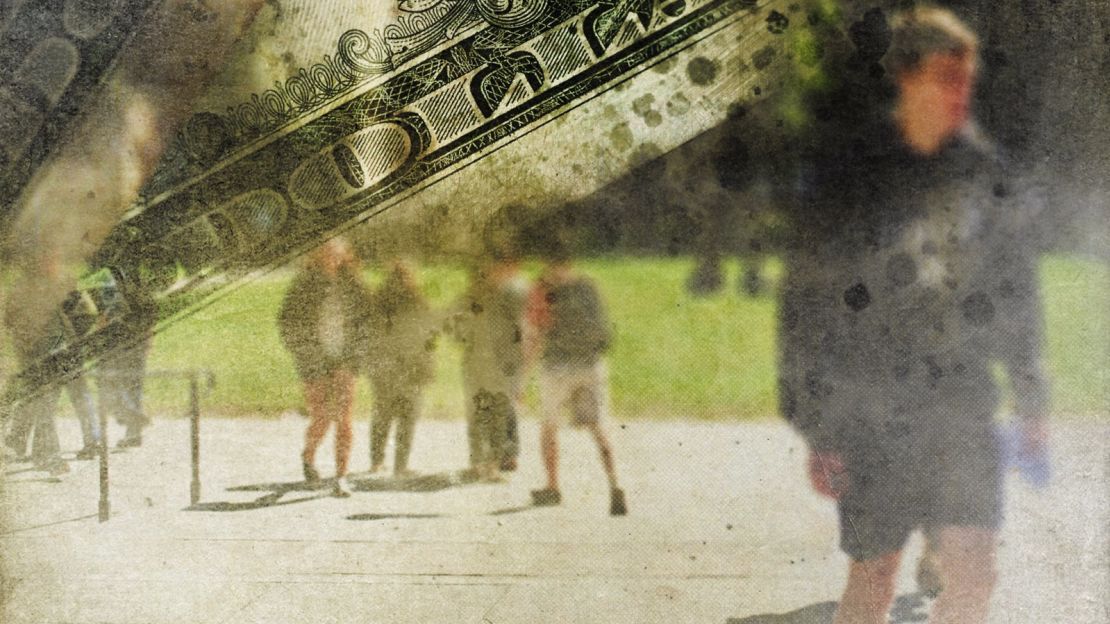
Their stories of privilege make me laugh. I know it can all be gone in a moment
I actually have a unique story, because I grew up in an upper middle class family, only to have my world come crashing down when I was in college after my father was diagnosed with Stage 4 cancer. When he died my junior year, he left a wife and four kids behind, and I had no idea how I was going to afford the private school I was attending. My academic scholarship, in addition to a specialized anonymous grant (specific to kids who lose their parents and persevere to graduation) were what allowed me to graduate, although I was not emotionally or mentally fully present the following year and a half.
Since graduation, I have had to fully support myself while my other peers (who come from my wealthy community back home) get to travel, live in fancy apartments and have extra money to buy nice things with the help from their parents. At 25, I remind myself that my journey is not like theirs, so it doesn’t bother me until I think about my future and how my plans are becoming increasingly harder to achieve due to lack of privilege and my setbacks. I dream of going back to school to become an art therapist for children with cancer. I cannot fathom adding to my loans, going back to college to pause my decently small paycheck for no paycheck, or being able to afford to live in a new city with more possibility than mine.
I hear these stories of wealth and I laugh because I know firsthand that you can lose it all in a heartbeat and our American systems fail to appreciate the value of hard work and perseverance over privilege. Still, I am hopeful that someday it will all work out for me and for many others who work hard to make ends meet and keep their dreams alive despite all the setbacks.
Erika Krenn, Pittsburgh, Pennsylvania
A first generation college graduate’s journey
I am a first generation college graduate. My journey towards higher education is a story of service, community development and environmental conservation. It all began when I was 22 years old, after I enrolled in a partnership program between the California Conservation Corps (CCC) and AmeriCorps, service learning programs developed to serve communities and develop youth. I worked on conservation and trail building projects across California. Both of these programs provided scholarships based on the amount of hours I completed within my program. I used these scholarships to enroll in a community college. I began by taking remedial math and English classes. These classes are no longer required since placement tests traditionally used by colleges tend to “under-place” a significant portion of students.
After earning enough credits and obtaining an associates degree in transfer studies, I transferred to Humboldt State University and completed my BA in geography with a minor in natural resources and planning. During this time, I worked seasonally for the US Forest Service and as a research assistant for a professor on climate change studies and bark beetle migration. After completing my degree, I was accepted into the US Peace Corps to serve as a community based natural resource manager. After completing my Peace Corps service, I received a fellowship and continued my education by earning a masters degree in sustainable development at the School for International training.
Alysia Ballinger, Willits, California
I’m a mother and an SAT tutor. Colleges need to face reality
My son worked every day for years to get into MIT. He decided in 9th grade, when he visited the university. It was his decision. He gave up having fun and friends. He gave up every weekend, holiday and vacation for four years to earn the right qualifications. He entered and won academic contests. As a student athlete he gave up all his free time to be good enough for consideration. I was in awe of my son and his discipline and effort, and I supported every step but never ran the show or suggested any illegal or immoral actions. The actions of these parents cheapens my son’s real efforts.
As a tutor for the SAT and ACT, I see people all the time with false ideas and hopes about what it takes to be in the top 1% of students nationwide. It is a calling and a full time job. It is a huge struggle, a grinding commitment, and for the parents, an expensive, heart-wrenching gamble to fund the effort.
These institutions that are seeing mediocre students get in, then not fail out, certainly must be systematically supporting them in some way. My son learned how truly elite a student must be to rightfully earn a place at a top tier university, and it is unbelievably difficult. It is also wearing out young people and creating the atmosphere we live in today.
This kind of competition is not healthy for anyone, let alone a young person. University admissions teams must do more to work together to stop this kind of crime, that cheapens everyone around them. But they also should take a hard look at the ridiculous standards they are holding young persons to, and place a cap on admissions expectations or young people will continue to exhaust themselves and cheaters will continue to cheat. I work with young hopefuls every day. Let me tell you, the damage to the mental health of our young people is a major contributing factor to the downfall of our country.
Cynthia Chazen, Demarest, New Jersey
Paola Nagovitch contributed to this story.











